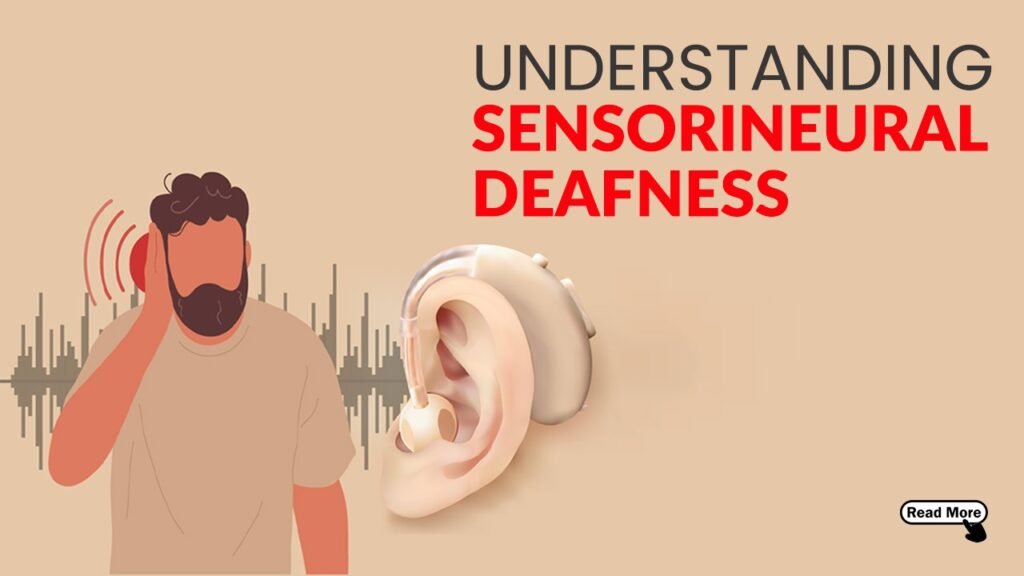UNDERSTANDING SENSORINEURAL DEAFNESS
UNDERSTANDING SENSORINEURAL DEAFNESS

Recently, our renowned playback singer Alka Yagnik, who is known for her iconic voice, in shaping the music industry of Bollywood, disclosed her personal struggle. The 58-year-old singer disclosed that she had been diagnosed with sensorineural deafness, which is a condition that affects the inner ear or the auditory nerve pathway to the brain.
Alka Yagnik has been a very important figure in Indian Cinema, leading with her melodious and sensational voice with countless hits. Her contributions to Bollywood music have been legendary. However, despite her remarkable career, she recently encountered a significant health setback.
The singer shared that her journey with sensorineural deafness began after a routine flight, where she suddenly noticed a complete loss of hearing. This sudden transition and unpredictable nature of deafness was shocking. Sensing and getting it checked it was proved to be triggered by various factors including noise exposure, aging, genetic predisposition, and certain medical conditions.
Talking about the seriousness of sensorineural deafness, which is also known as nerve deafness, is a type of hearing loss that occurs due to damage or dysfunction of the inner ear or the auditory nerve pathways to the brain. This condition can range from mild to high impacting the ability to hear and comprehend sounds effectively.
Causes of Sensorineural Deafness
- Age-related degeneration : gradual deterioration of the inner ear structures and auditory nerve commonly occurs with aging, leading to age-related sensorineural hearing loss
- Noise exposure : exposure to loud noises, such as industrial machinery, firearms, or loud music can damage the hair cells, causing hearing loss. This type is often preventable by using hearing protection.
- Genetic factors : inherited genetic mutations can lead to sensorineural deafness. Conditions like Usher syndrome, Waardenburg syndrome, and neurofibromatosis are examples where genetic abnormalities can affect hearing
- Medical conditions : certain medical conditions, including autoimmune disorders, can lead to hearing loss
- Birth complications : babies born prematurely or those with complications during birth may experience hearing loss due to underdeveloped or damaged inner ear structures
Symptoms of Sensorineural Deafness
The symptoms of sensorineural deafness can vary depending on the severity and underlying cause but typically include :
- Difficulty in understanding speech, especially in noisy environments
- Distorted sound perception
- Inability to hear certain frequencies or pitches
- Ringing, buzzing or roaring sounds in the ears
- Gradual onset of hearing loss over time
- Difficulty hearing conversations on the phone
It is essential to note that sensorineural deafness often affects both ears but may not necessarily progress at the same rate in each ear.
Treatment Options
While sensorineural deafness is often irreversible, several treatments can help manage the condition and improve quality of life :
- Hearing aids : these devices amplify sounds and improve hearing for many individuals with mild to moderate hearing loss.
- Assistive Listening Devices (ALDs) : ALDs such as FM systems, infrared systems, and loop systems can enhance hearing in specific situations, such as classrooms or theatres, by reducing background noise and delivering sound directly to the listener
- Speech therapy : for individuals experiencing speech comprehension difficulties due to sensorineural deafness, speech therapy can help improve communication skills and strategies
- Medications and surgery : in cases where hearing loss is caused by underlying medical conditions or infections, treatments such as corticosteroids or surgery to correct anatomical abnormalities may be considered
Concluding, sensorineural deafness is a complex condition that requires comprehensive evaluation and management by qualified healthcare professionals, including ENT specialists and audiologists. While some causes of sensorineural deafness are preventable or treatable, others may require ongoing support and adaptive strategies to promote communication and auditory function.
Ending with, seeing the seriousness of Alka Yagnik’s situation, it is requested that each one of us should prioritize our hearing health and support those affected by this condition in their journey towards better auditory well-being.